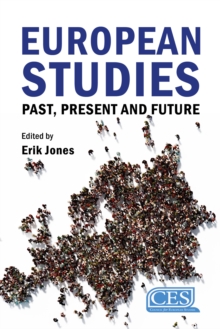
Heralds of a Democratic Europe : Representation without Politicization in the European Community, 1948–68 Hardback
by Dr Koen (Utrecht University) van Zon
Part of the Understanding Europe: The Council for European Studies book series series
Hardback
Description
The received wisdom in European integration history is that, long before the EU was plagued by Euroscepticism and other forms of contestation, there was a "permissive consensus" between European elites and the general public, which allowed European integration to move forward.
This book looks beyond this presumed consensus, to ask how the members of European institutions themselves perceived and shaped their relations with European citizens during the early years of the European Communities. It does so from the perspective of the people who were responsible for representing citizens at the European level: the members of the European Parliament (which represented European citizens) and the Economic and Social Committee (which represented European organised interests).
The book follows the first generation of these European representatives in building their institutions during the 1950s and 1960s.
It shows that the European representatives sought to democratise the Communities, within the constraints of the legal and institutional framework that was created with the European treaties.
In doing so, the book argues, they created new path dependencies and reaffirmed existing ones, but hardly challenged the status quo – characterised later with concepts like the permissive consensus and the democratic deficit.
The book shows, then, that the European representatives’ ambition to democratise the European Communities from within has shaped European integration in ways that are not fully appreciated and understood by historians and political scientists.
Information
-
Pre-Order
- Format:Hardback
- Pages:240 pages
- Publisher:Agenda Publishing
- Publication Date:25/07/2024
- Category:
- ISBN:9781788216081
Information
-
Pre-Order
- Format:Hardback
- Pages:240 pages
- Publisher:Agenda Publishing
- Publication Date:25/07/2024
- Category:
- ISBN:9781788216081










